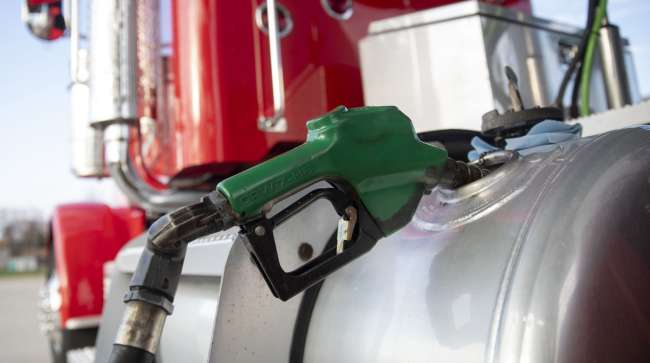Staff Reporter
Rising Fuel Taxes to Hit Three States; California Warned

[Stay on top of transportation news: Get TTNews in your inbox.]
Fuel taxes are set to increase in three states at the start of next year, while fuel prices in a fourth could see a big jump if warnings from state lawmakers and industry researchers about an upcoming regulatory change prove true.
In Minnesota, the state’s motor fuel tax on Jan. 1 will jump nearly 12% to 31.8 cents for diesel, gasoline, biodiesel and other fuels. The increase is tied to Minnesota legislation, which links fuel tax increases to higher highway construction costs. The roughly 12% increase also applies to liquefied petroleum gas used as a motor fuel, which is seeing its tax rate jump to 23.9 cents, as well as liquefied natural gas, which is seeing a tax jump to 19.2 cents. The tax rate for compressed natural gas is rising to 0.251 cents per cubic foot from 0.225 cents.
In Florida, the state tax rate on diesel will edge up to 21.5 cents per gallon from 21 cents, while county tax rates will rise to 17 cents per gallon statewide from 15.9 cents. Together, total diesel fuel taxes in Florida beginning Jan. 1 will reach 38.2 cents per gallon, a 2% gain.
Also effective Jan. 1, taxes in Utah for both gasoline and diesel will increase by 2 cents to 38.5 cents per gallon. This applies to gas and diesel sold, used or received to be used in the state. The state adjusts fuel tax rates under a formula that factors 14.2% of the statewide average motor fuel rack price for the previous three fiscal years. “Following this method, motor fuel and special fuel tax rates will increase by 2 cents for 2025,” according to a Utah State Tax Commission Tax Bulletin.
While no specific tax increase is taking effect in California, at least two state lawmakers are raising alarm about a set of regulatory and business circumstances that they believe could send pricing soaring.
John Elliott of Load One demonstrates how onboard video combined with AI-enabled analytics can transform fleet safety. Tune in above or by going to RoadSigns.ttnews.com.
California state Sen. Brian Jones (R) on Nov. 19 issued a notice telling residents to brace themselves for a four-part domino effect brewing that combines a new, more aggressive Low Carbon Fuel Standard, a new fuel inventory law, a petroleum refinery closure and an automatic fuel excise tax increase.
“The average family with two drivers should be prepared to pay an additional $900 next year for gasoline,” said Jones, minority leader in the California Senate. “I’m concerned Californians will face major sticker shock and be unprepared for the rapid gas price spike in 2025, which could be an additional 90 cents per gallon.”
Jones cited a Nov. 11 report from the University of Southern California’s Marshall School of Business called, “Brace for Impact…California Gasoline Prices to Spike in 2025” by Michael Mische. The study discussed a Nov. 8 decision by the California Air Resources Board to promulgate a more aggressive new LCFS, which means the state must offer a new California-specific fuel blend in 2025 to lower carbon intensity in transportation fuels while using low-carbon and renewable alternatives. “By its own admission, the CARB projected that the new special blend would increase the retail price of gasoline by $0.47 a gallon,” the report declared.
Jones vowed to support new legislation to repeal the new LCFS regulation. “Workers will struggle to afford their commutes, the cost of goods will skyrocket, and families will be forced to cut back on even the most basic activities” should the law advance, he said.
State Sen. Janet Nguyen (R) has an online petition seeking people to voice their concerns to legislators regarding impact of the LCFS. “We are being taxed out of California on gasoline. We currently pay $1.25 a gallon in taxes and next year a little-known carbon tax will increase to 47 cents. I want everyone to know about this,” she stated.
This past July 1, the California diesel fuel tax rose to 45.4 cents from 44.1 cents a year before. Biodiesel, waste vegetable oil and straight vegetable oil have the same tax as diesel.
Want more news? Listen to today's daily briefing below or go here for more info:





